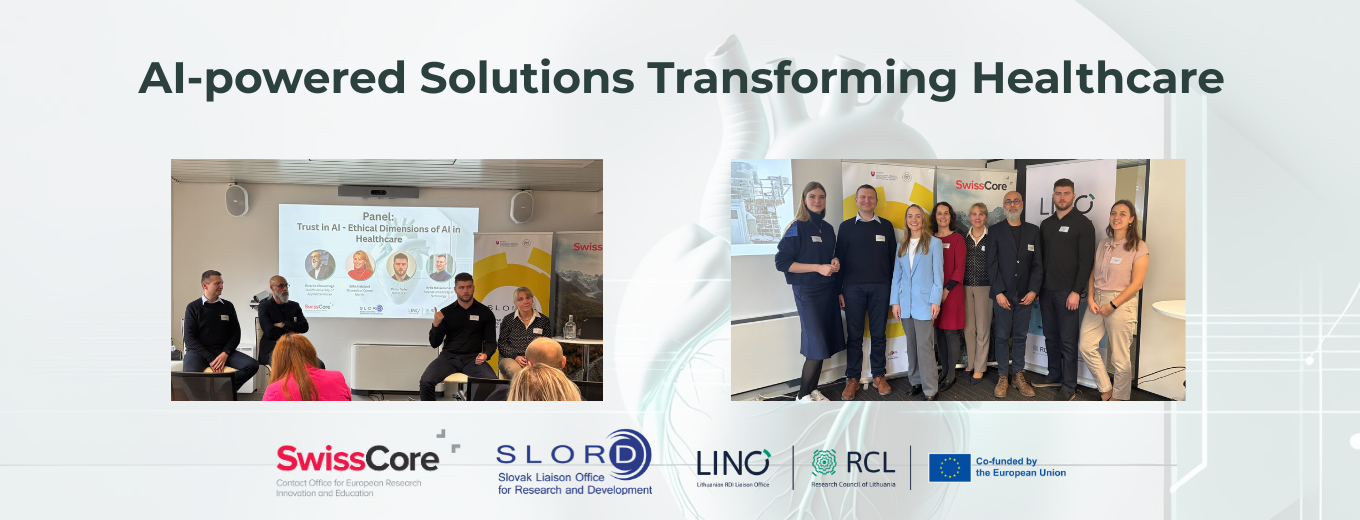At a SwissCore, LINO and SLORD event, innovators from Switzerland, Slovakia and Lithuania demonstrated how AI is already reshaping healthcare.
On 22 October 2025, SwissCore teamed up with LINO and SLORD to organise an event on the transformative effects of AI in healthcare. The programme featured a keynote presentation by Saila Rinne, Head of Unit A6 “Artificial Intelligence in Health and Life Sciences” at the AI Office of the European Commission, and three presentations demonstrating real-life applications of Artificial Intelligence (AI) in health which are currently being developed in Lithuania, Slovakia and Switzerland, respectively. The event further offered ample opportunity for discussion among the speakers and audience.
In her presentation, Ms Rinne elaborated on the complex legal framework for AI applications in healthcare, highlighting the multiple regulatory dimensions intersecting in this space. She further demonstrated how the EU is facilitating an enabling environment for the development and deployment of AI across healthcare systems, by pointing towards the AI factories, many of which will specialise in healthcare, as well as on the new Apply AI Strategy.
In the following three pitches, Erika Halašová (Biomedical Centre Martin) and Viktor Vaňo (Hofitech s.r.o.) from Slovakia first introduced the audience to their application for non-invasive and early cancer detection through a simple interface and the use of illustrative chromatograms. Prof. Rytis Maskeliūnas (Kaunas University of Technology) from Lithuania demonstrated an application for AI-based voice screening for cancer detection, as well as his research group’s work on enhancing patients’ voices after throat cancer surgery. Hailing from Switzerland, Ricardo Chavarriaga (Zurich University of Applied Science) challenged the current state of data sharing and representativeness of data used for developing AI applications in healthcare. He further presented the work of the BRIDGE consortium, a trustworthy AI assessment platform currently under development which would allow for a more streamlined and simplified approach to meeting regulatory standards for AI in health.
The event closed with an open exchange between audience members and the speakers. One main point of discussion was the lack of trust among doctors in AI and the growing urgency of adapting medical curricula to rightfully reflect AI as one of many tools at the physicians’ disposal. Lack of trust, also across jurisdictions and developers, was further identified as a barrier to scaling up AI applications currently under development.
SwissCore would like to thank all speakers and participants for their engagement and enthusiasm at the event, as well as LINO and SLORD for the successful cooperation.

